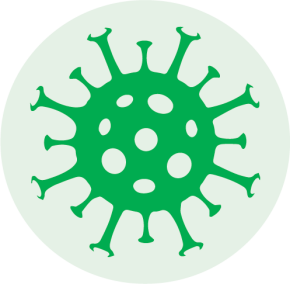

EDCTP portfolio: Emerging diseases
index


The AfriDx project is developing diagnostic tools specifically designed to be used and manufactured in sub-Saharan Africa.
Affordable diagnostics for SARS-CoV-2

An effective response to the COVID-19 pandemic depends on the ability to detect current infections, as well as people who have been infected and have developed immunity.
The gold standard diagnostic test for SARS-CoV-2 is a molecular test (polymerase chain reaction, PCR) that detects the virus’s genetic material (RNA). However, PCR requires specialist facilities and is expensive. In addition, different tests are required to identify those who have been infected, generally based on the detection of SARS-CoV-2-specific antibodies. Again, the most useful rapid point-of-care tests are expensive and their widespread use is likely to rely on donor support.
The challenge

The AfriDx project aims to develop high-quality molecular and antibody-based tests that are suitable for use in African populations and can also be manufactured locally to ensure affordability and sustainability.
Members of the project team have developed a novel molecular testing platform, known as PATHPOD, that is accurate, easy to use at point of care, and gives results within an hour (as opposed to around two days for conventional testing at central laboratories). PATHPOD is undergoing clinical testing in Europe, and preliminary results indicate very close agreement with the results of gold standard molecular testing.
To enhance affordability, the PATHPOD platform is being adapted so that it functions using reagents that could be readily manufactured in low-resource settings, using technology developed by other project partners. The consortium includes commercial partners with experience of bringing diagnostics to the market in Africa.
Similarly, new antibody-based tests will be developed, based on two resources held by European and US academic partners: fragments of viral coat proteins that can be used as ‘bait’ to hook out SARS-CoV-2-specific antibodies; and a large antibody fragment library that will be screened to identify fragments that bind specifically to different types of human antibody. These components will be used to develop a ‘dipstick’ test for rapid identification of different types of SARS-CoV-2-specific antibodies.
The project will also explore methodological innovations, such as use of pooled testing. As infection rates are generally low (based on incidence rates of April 2020), 5–10 samples could be pooled and tested, and individual samples only tested when a pooled sample returns a positive result.
The project

The AfriDx project will generate new tools for detection of current and past SARS-CoV-2 infections – essential for understanding the spread and distribution of infections. By focusing on technology transfer, and by involving a partner with experience of launching new diagnostics in Africa, the project will also establish a foundation for regional manufacturing to ensure long-term sustainability.
Impact


“
test the safety and efficacy of this new formulation in young children
”
Bringing antiretroviral drugs to children

The CHAPAS trials have ensured that many more children with HIV have benefited
from life-saving antiretrovirals.
EDCTP portfolio: HIV & HIV-associated infections
The challenge
An effective response to the COVID-19 pandemic depends on the ability to detect current infections, as well as people who have been infected and have developed immunity.
The gold standard diagnostic test for SARS-CoV-2 is a molecular test (polymerase chain reaction, PCR) that detects the virus’s genetic material (RNA). However, PCR requires specialist facilities and is expensive. In addition, different tests are required to identify those who have been infected, generally based on the detection of SARS-CoV-2-specific antibodies. Again, the most useful rapid point-of-care tests are expensive and their widespread use is likely to rely on donor support.

The AfriDx project aims to develop high-quality molecular and antibody-based tests that are suitable for use in African populations and can also be manufactured locally to ensure affordability and sustainability.
Members of the project team have developed a novel molecular testing platform, known as PATHPOD, that is accurate, easy to use at point of care, and gives results within an hour (as opposed to around two days for conventional testing at central laboratories). PATHPOD is undergoing clinical testing in Europe, and preliminary results indicate very close agreement with the results of gold standard molecular testing.
To enhance affordability, the PATHPOD platform is being adapted so that it functions using reagents that could be readily manufactured in low-resource settings, using technology developed by other project partners. The consortium includes commercial partners with experience of bringing diagnostics to the market in Africa.
Similarly, new antibody-based tests will be developed, based on two resources held by European and US academic partners: fragments of viral coat proteins that can be used as ‘bait’ to hook out SARS-CoV-2-specific antibodies; and a large antibody fragment library that will be screened to identify fragments that bind specifically to different types of human antibody. These components will be used to develop a ‘dipstick’ test for rapid identification of different types of SARS-CoV-2-specific antibodies.
The project will also explore methodological innovations, such as use of pooled testing. As infection rates are generally low (based on incidence rates of April 2020), 5–10 samples could be pooled and tested, and individual samples only tested when a pooled sample returns a positive result.
The project
The later CHAPAS-3 trial compared the efficacy and safety of three fixed-dose combinations including two without stavudine (found to have some long-term side effects in adults, leading to a recommendation that its use be discontinued in children). The trial the first of its kind in Africa studied nearly 500 children at four sites in two African countries.
The AfriDx project will generate new tools for detection of current and past SARS-CoV-2 infections – essential for understanding the spread and distribution of infections. By focusing on technology transfer, and by involving a partner with experience of launching new diagnostics in Africa, the project will also establish a foundation for regional manufacturing to ensure long-term sustainability.
ratios forfixed-dose combinations and on appropriatedosage according to weight.
The CHAPAS-3 trial confirmed the effectiveness of fixed-dose combinations, providing further impetus to the rollout of antiretrovirals to children. Its evidence on abacavir informed the WHO recommendation of abacavir-containing combinations for first-line therapy in children. Trial data have also been used to support applications for regulatory approval for new scored efavirenz tablets.
Impact
L’homme RF et al. Nevirapine, stavudine and lamivudine pharmacokinetics in African children on paediatric fixed-dose combination tablets. AIDS. 2008;22(5):557–65.
Mulenga V et al. Abacavir, zidovudine, or stavudine as paediatric tablets for African HIVinfected children (CHAPAS-3): an open-label, parallel-group, randomised controlled trial. Lancet Infect Dis. 2016;16(2):169–79.
WHO. Guidelines on the use of antiretroviral drugs for treating and preventing HIV infection: recommendations for a public health approach. 2010.
WHO. Consolidated guidelines on the use of antiretroviral drugs
for treating and preventing
HIV infection: Recommendations for a public health approach
(second edition). 2016
Projects: Children with HIV in Africa Pharmacokinetics and Adherence of Simple Antiretroviral Regimens (CHAPAS): CHAPAS-1 and -3
Project lead: Professor Chifumbe Chintu, University Teaching Hospital, Zambia (CHAPAS-1); Dr Veronica Mulenga, University Teaching Hospital, Zambia (CHAPAS-3)
Target population(s): Children with HIV
Sample size: 71 (CHAPAS-1); 480 (CHAPAS-3)
Countries involved: Ireland, the Netherlands, the UK, the USA, Zambia (CHAPAS-1); Uganda, Zambia (CHAPAS-3)
Project duration: 2005–2009 (CHAPAS-1); 2010 –2011 (CHAPAS-3)
EDCTP funding: €1.2M (CHAPAS-1); €4.6M (CHAPAS-3)
Total project funding: €1.2M (CHAPAS-1); €5.0M